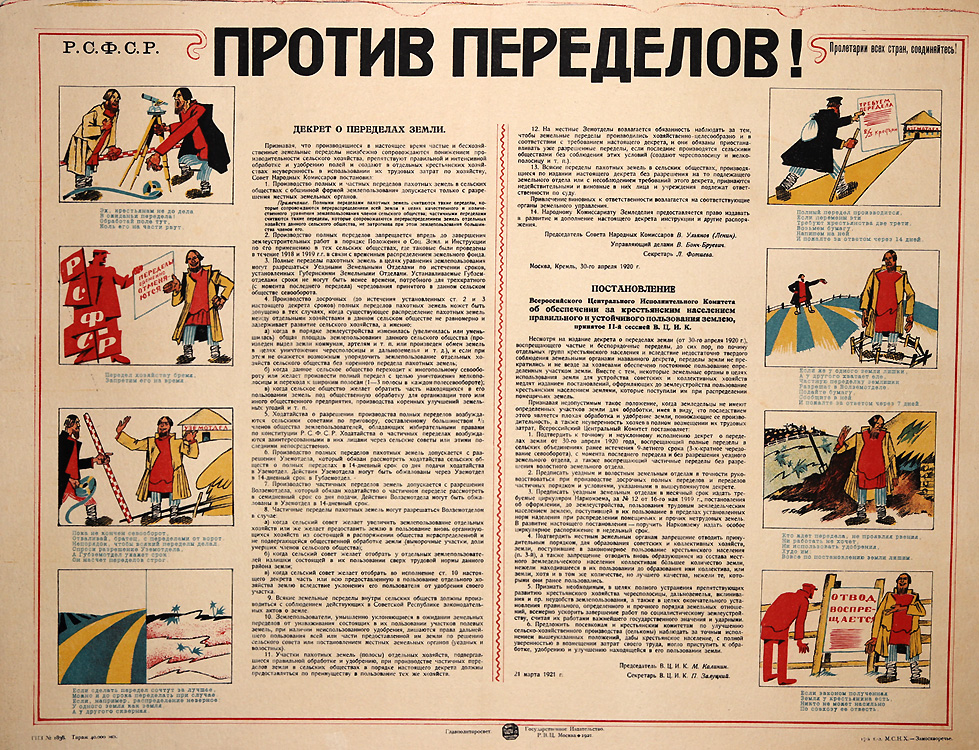
Against Redistribution! [Partial translation]
Número de Cartel: PP 1143
Información sobre el cartel: The printed resolutions show the Decree on land redistribution from April 30, 1920. Each resolution is signed at the bottom by the following individuals: L. [Lidia] Fotieva, Secretary of the Council of People’s Commissars, V. [Vladimir] Bonch-Bruevich (Vladimir Lenin's personal secretary) and Executive Secretary of the Council of People's Commissars, and V. Ul’ianov [Vladimir Lenin], Chair of the Council of People’s Commissars.
Tamaño: 29.5x23
Tipo de cartel: Litografía
Fecha de publicación: 1921
Información técnica: GIZ No. 1836; RVTs (Passed by Military Censor), Moscow.
Ediciones: 40,000
En el catologo: PP 1143 Civil War c
Artista: Cheremnykh, Mikhail Mikhailovich — Черемных, Михаил Михайлович
Mikhail Mikhailovich Cheremnykh is considered a master of Soviet satirical graphics. Born in Siberia, he relocated to Moscow in 1911 to study painting where he subsequently enrolled in MUZhViZ (Moscow School of Painting, Sculpture and Architecture). By 1919 he established the ROSTA (Russian Telegraph Agency) artist studio in Moscow and served as its artistic director until 1922, when he co-founded the satirical magazine Krokodil (Crocodile). From 1939 to 1941, the artist worked as a book illustrator and as a set ...
Leer más...
Imprenta: MSNKh 17th Typolithography, Zamoskvorech'e [Moscow] — 17-я типолитография МСНХ, Замоскворечье [Mосква]
The 17th Typolithograhy of the MSNKh (Moscow Council of National Economy) was located in the Zamoskvorech'e District of Moscow. It served as a contract printer for the posters designed by ROSTA (Russian Telegraph Agency).
Leer más...
Editorial: Glavpolitprosvet (Main Department of Political Education of the People's Commissariat of Education, RSFSR) — Главполитпросвет, РСФСР
Glavpolitprosvet (Main Department for Political Education) was created in 1920 and placed under the People's Commissariat of Education (Narkompros). Glavpolitprosvet served as a semi-independent institution that supervised political education. Its chief function was to educate non-Communist Party members and yet its management frequently crossed over into the Party apparatus. Political education was managed via local reading-rooms, lecture halls, social clubs, public libraries ("mass libraries"), movie production and exhibition ("mass cinema"), adult schools, ...
Leer más...